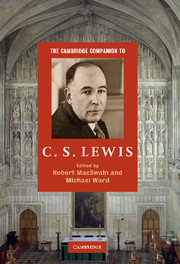9 - On moral knowledge
from Part II - Thinker
Published online by Cambridge University Press: 28 November 2010
Summary
In The Magician's Nephew, sixth in the Chronicles of Narnia, we learn how Aslan created the land of Narnia. As a culminating point of that creation, Aslan selects some of the animals to be Talking Beasts. To them he says: “I give to you forever this land of Narnia. . . . I give you the stars and I give you myself. The Dumb Beasts whom I have not chosen are yours also. Treat them gently and cherish them but do not go back to their ways lest you cease to be Talking Beasts.” / It is possible, in other words, for Talking Beasts to give up their privileged position and cease to view themselves as anything other than Dumb Beasts, understanding themselves only 'from below'. They can do that; however, in so doing they turn from their created nature. That is why, in the great scene of judgement at the end of the Chronicles of Narnia, the Talking Beasts who look on the face of Aslan with hatred rather than love cease in that moment to be Talking Beasts and become just ordinary animals. A freely chosen abolition of their nature occurs. The vision here depicted in the Chronicles is more systematically developed by Lewis in other writings, most centrally in The Abolition of Man.
- Type
- Chapter
- Information
- The Cambridge Companion to C. S. Lewis , pp. 119 - 131Publisher: Cambridge University PressPrint publication year: 2010
- 2
- Cited by

